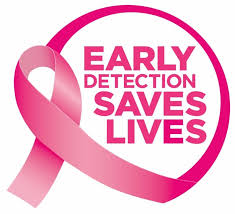
National Breast Cancer Awareness Month brings vital attention to the importance of breast cancer detection, treatment, and overall well-being. One often overlooked factor in both preventing and recovering from breast cancer is sleep. While adequate sleep plays a critical role in boosting the immune system, it can also have a direct effect on breast cancer outcomes. Here’s how sleep can help prevent breast cancer and aid in the recovery process.
The Role of Sleep in Breast Cancer Prevention
Getting enough quality sleep may reduce the risk of developing breast cancer. Research suggests that disruption of circadian rhythms, the body’s natural 24-hour internal clock, can increase the risk of cancer.
Sleep disturbances—such as those caused by night shifts or irregular sleeping patterns—are thought to affect the body’s ability to regulate hormones like melatonin, which helps control cell growth. Low levels of melatonin may contribute to an increased risk of breast cancer.
Here’s how sleep can help prevent breast cancer:
- Melatonin has been shown to slow the growth of certain types of cancer cells. A good night’s sleep helps maintain healthy melatonin levels, which may protect against tumor growth.
- Sleep helps regulate other hormones like estrogen, which is linked to breast cancer risk. Disrupted sleep patterns can lead to hormone imbalances, increasing cancer risk.
- Quality sleep strengthens the immune system, helping the body fend off illness and abnormal cell growth. During sleep, the body releases cytokines, proteins that help fight infections and inflammation, which can protect against cancer development.
Signs and Symptoms of Breast Cancer
While prioritizing sleep for prevention is important, it’s also critical to recognize the early signs and symptoms of breast cancer, as early detection leads to better outcomes. Some common signs include:
- A lump or thickening in the breast or underarm
- Change in the size, shape, or appearance of the breast
- Nipple discharge or inversion
- Skin changes such as redness or dimpling
- Pain in the breast or nipple area
If you experience any of these symptoms, it’s essential to consult a healthcare provider for further examination.
Sleep and Breast Cancer Recovery
For those undergoing treatment for breast cancer, sleep can play a powerful role in recovery. Cancer treatments like chemotherapy, radiation, and surgery can take a toll on the body, leading to fatigue and sleeplessness. However, getting enough rest is crucial to helping the body heal and fight off the disease.
Here’s how sleep supports recovery:
- Cell repair and regeneration: During sleep, the body repairs damaged tissues and promotes cell regeneration, which is crucial for healing after cancer treatments.
- Mental health support: Sleep helps reduce stress and anxiety, which are common during breast cancer treatment. Better mental health can improve the body’s ability to recover and respond to treatment.
- Boosting energy: Restorative sleep provides the energy needed for daily activities and helps reduce the overwhelming fatigue often experienced during cancer treatment.
How to Improve Sleep During Breast Cancer Treatment
Many breast cancer patients struggle with sleep due to pain, anxiety, or side effects from treatment. However, there are steps you can take to improve your sleep during recovery:
- Stick to a consistent sleep schedule
- Create a calming bedtime routine
- Make your sleep environment comfortable and free from distractions
- Avoid caffeine and heavy meals before bedtime
Getting the rest you need is essential for both preventing and recovering from breast cancer. By prioritizing sleep, you’re not only supporting your overall health but also giving your body the tools it needs to heal. Reach out to the Alaska Sleep Clinic to help you recover.











